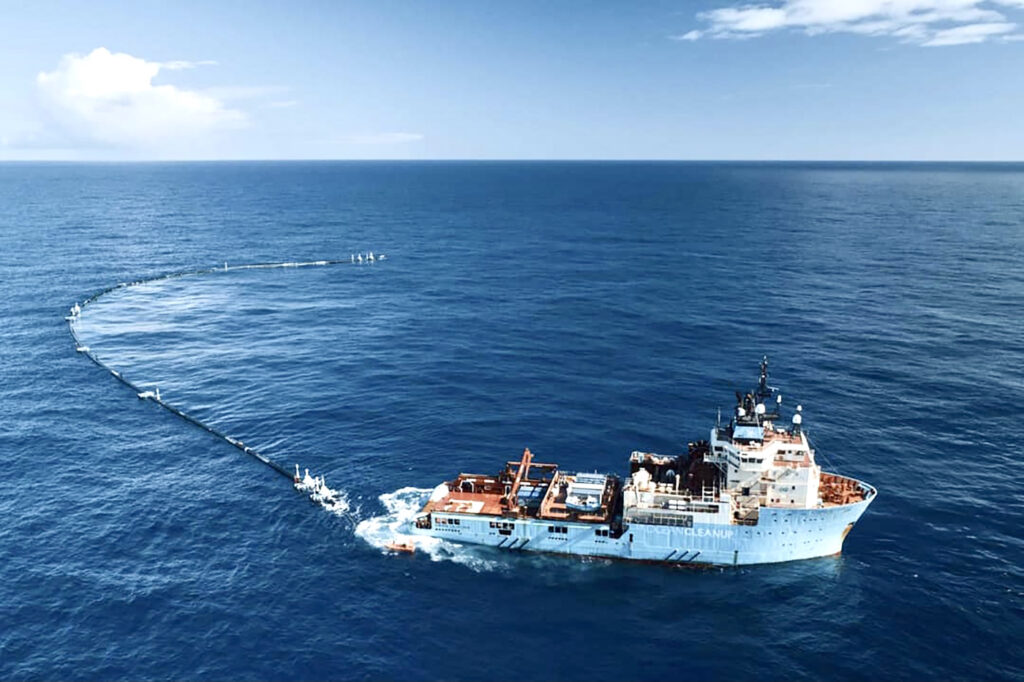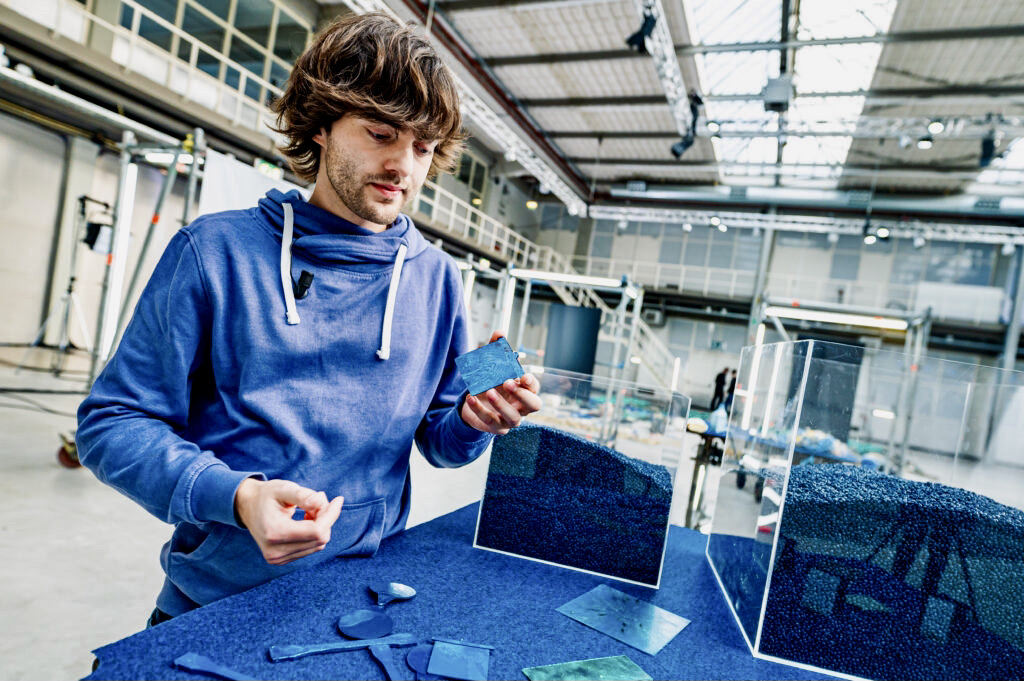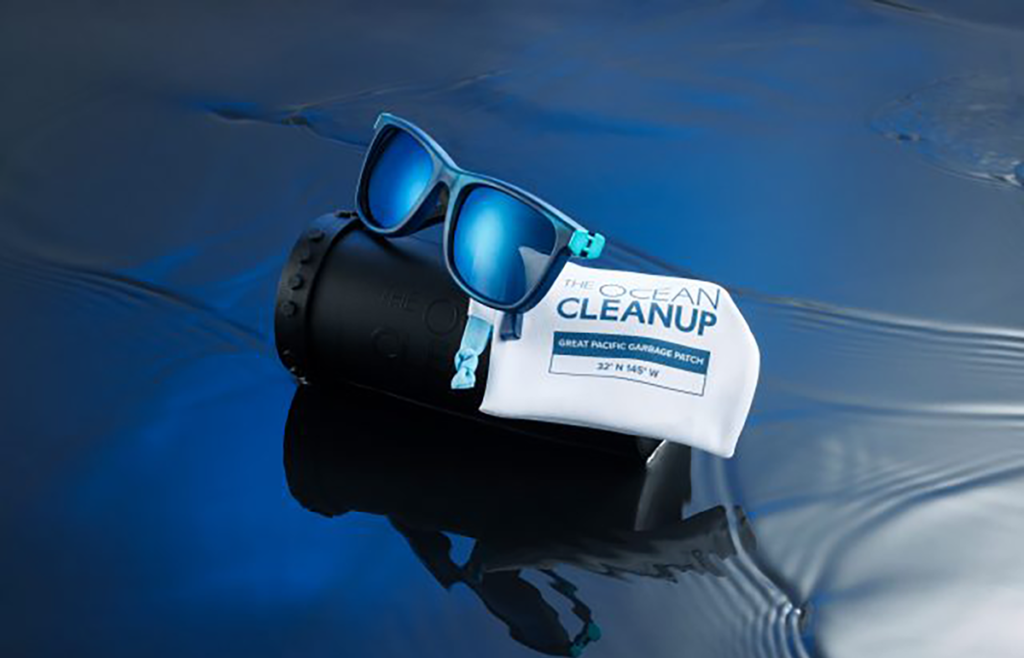Founded in 2013 by Boyan Slat, “The ocean cleanup” is a nonprofit organization committed to cleaning the oceans of plastic waste. Every year millions of tons of plastic end up in the oceans becoming “legacy plastic”. The solution to the pollution of our oceans, therefore, requires a reduction in the waste of plastic and at the same time, a recovery of the plastic already accumulated. To complete these efforts, truly useful recycling of waste is necessary. Thus “Pacific Garbage Patch sunglasses” are born, a pair of sunglasses for the ocean.

Mission
“The Ocean Cleanup” mission is to develop innovative technologies to remove up to 90% of the plastic from the oceans. To make this project a reality, the team is working on the design of technologies to clean up the plastic already in the oceans and simultaneously intercept the plastic in the rivers.
A significant percentage of the plastic that arrives in the oceans from rivers can take years and in the journey accumulate on islands. This becomes dangerous as it encourages the creation of microplastics that risk being mistaken for food by marine wildlife. In order to prevent this risk, the organization has studied for a long time, creating innovative cleaning systems. In order to avoid that this process brings with it carbon dioxide pollution, the system is developed around the exploitation of currents creating a passive cleaning technology.
Recycling and the creation of “Pacific Garbage Patch sunglasses”
However, ”The Ocean Cleanup” couldn’t stop at plastic collection. In 2019, back from the first test of its system, a new challenge began for the organization. Once the plastic was recovered, it was necessary to find a new purpose for it to prevent it from becoming waste again.
On October 24, the organization announced its first product made from ocean plastic, a pair of sunglasses for the ocean and its preservation. In order to achieve this result, it was necessary to collaborate with various realities in order to allow the selection and reprocessing of recovered waste. Slat says of the production: “We had to organize an entirely new supply chain, as such a material had never been processed before.”

The glasses are made mostly from discarded fishing nets and high-density polyethylene. ”It was a challenge, as the materials have sometimes been in the ocean for decades”, Boyan Slat says. “Most of these materials are shredded or degraded and all mixed together. That makes the process of turning them into usable material very difficult. So much so that we didn’t know if it would be possible for us to complete such a project when we started it”.
There is also the possibility that other types of plastics will be recovered later through other technologies to go into creating other products. Proceeds from the sale of the glasses will go into the development of new methods and technologies for cleaning up the oceans.
The sunglasses for the ocean
After a lot of work, the frames are the first in the world to be made entirely from plastic recovered from the ocean. As a result of the complex process, the texture of the material remains as irregular as the surface of the sea from which it comes. Seeing this as a plus, Slat emphasizes how this makes each pair of glasses unique and truly tied to its origin. The design of the glasses is specifically studied to allow them to be disassembled and recycled once they reach the end of their life.

Designed in California by Yves Béhar, they were then made in Italy by Safilo. Wanting to offer complete transparency in their production processes, “The ocean cleanup” has collaborated with the independent body of certifications, DNV GL, to be able to trace the entire supply chain. In addition, the organization is committed to offsetting the CO2 emissions that were necessary for the campaign in the ocean, for products that tend to be as sustainable as possible.





